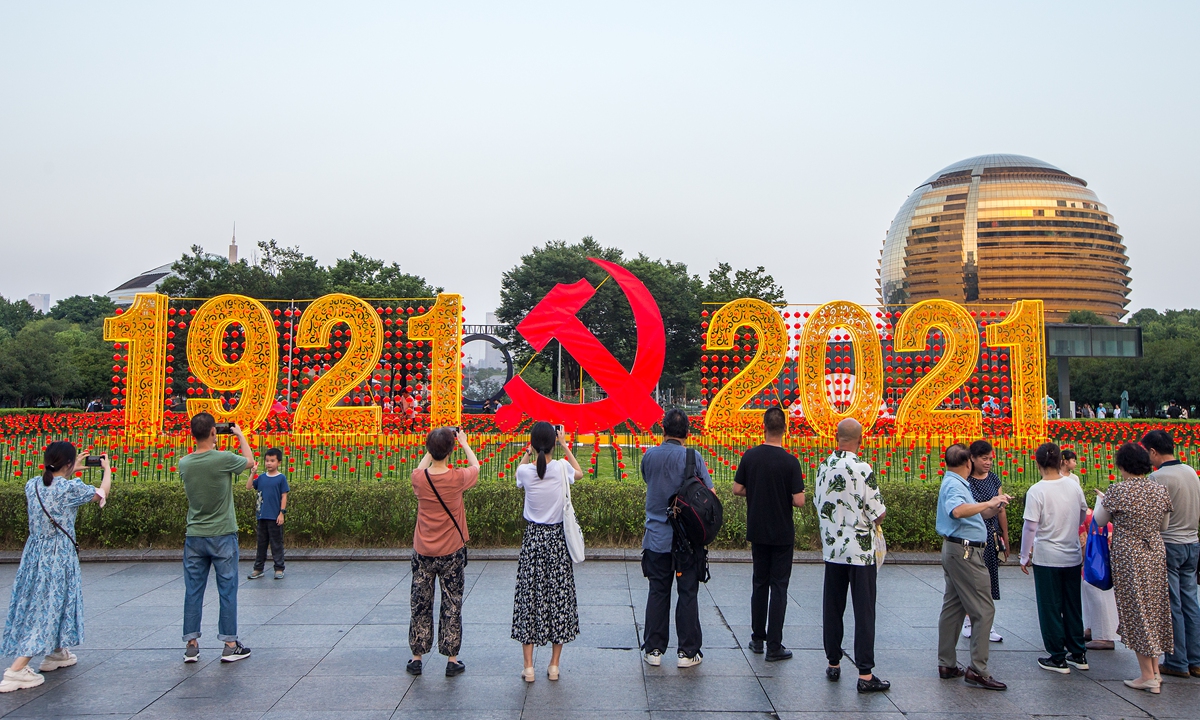CPC leadership transformed China into a visionary global leader: Bahrain Ambassador
Tenacious legacy

Ambassador of the Kingdom of Bahrain to China, Dr. Anwar Alabdulla Photo: Courtesy of Embassy of Bahrain in China
Under the vision and guidance of the Communist Party of China (CPC) and with great inspiration, sacrifice and hard work from the Chinese nation, China was transformed from a poor and weak nation to a global economic power; a visionary leader in the development of new international partnerships, an innovator in science and technology, and a model for the eradication of poverty and sustainable development, Ambassador of the Kingdom of Bahrain to China, Dr Anwar Alabdulla, noted in praise of the achievements made by the CPC and China on the occasion of the 100th anniversary of the founding of the CPC.
China's global leadership and its vision for a new, better world is captured in its visionary Belt and Road Initiative (BRI) that has been embraced widely in the world, the ambassador told the Global Times.
He noted that the BRI promises a new world order based not on the post-war global alliances of the past, but an interdependent world collaborative network of people, not blocs; partnerships instead of alliances.
"Regional development and rejuvenation are common themes in China that run parallel to the goals of the BRI. This fact is not always understood by the foreign media, in its constant search for dramatic headlines," he noted.
The ambassador noted to the Global Times that the rapid and continuous development of the Xinjiang Uygur Autonomous Region has at times been overshadowed in a few world media sites by often ill-informed reports of terrorism and separatist and sectarian strife in the region. Dr Alabdulla visited Xinjiang in 2019 and 2020.
"I can testify that in just one year, I saw further progress in the economic and social development of the region. I suppose that this should be hardly surprising: Since 1952, the real GDP growth of this amazing region has averaged at 8.2 percent per year, and the overall income of the region has increased 200-fold over this period, with the aid of special economic zones and public investment. These are truly remarkable results," he said.
In a broader global context, the sad fact is that extremism, terrorism and divisive sectarian violence by a few resisting change against the innocent majority are a modern reality in many places around the world. The global community has to understand these disruptive forces and collaborate to combat them so that we can continue on the long march to fulfill our dreams, he added.
Closer bond
The Arabian Gulf and the Chinese people have had a long-standing and close relationship that extends back over two millennia. This relationship rests on a solid foundation of mutual trust and shared aspirations that developed over this period through a multitude of commercial, economic, social, scientific, cultural and security interactions that brought the two great peoples together for their mutual benefit, he said.
He noted that the future development of the banking and finance industry is a key target for Sino-Arab cooperation and the financial ecosystem is a core strength of Bahrain.
According to the ambassador, cross-border financial cooperation platforms, Islamic banking and new financial technologies are strongly related to enabling BRI visions and to the dismantling of transactional barriers between global communities. Islamic banking can be considered a form of domestic and cross-border financial cooperation that, through innovation and creativity, has successfully addressed specific cultural and business needs for funding growth and balancing risk, he explained.
The joint development of Islamic finance and sukuk funding in China and the Middle East provide an excellent opportunity for banks to capitalize on the growth of trade and investment between the two regions, he added.
Bahrain's Economic Vision 2030 was launched in October 2008 by H.M. the King Hamad bin Isa Al Khalifa as a comprehensive vision and blueprint for the continued development of the kingdom's economy and the improvement of the economic and social welfare of every Bahraini.
The vision focuses on shaping the vision of the government, society, and the economy, based on three guiding principles; sustainability, fairness and competitiveness.
"The principles and goals of our Economic Vision 2030 are easily recognizable in the Belt and Road Initiative and the Community of Common Destiny goals that support it. I can state categorically that the Belt and Road Initiative and Bahrain's Vision 2030 program align well as visions and roadmaps," he said.
Meanwhile, Bahrain welcomes China's interest and participation in seeking a just and lasting peace in the Middle East as an essential environmental condition to achieving our economic and social visions. War, conflict and terrorism are not a supportive framework for sustainable development and the Middle Eastern region has been plagued by these conditions for far too long, said the ambassador.
In addition to diplomatic and economic ties, the country is also looking forward to enhancing cultural exchanges with China.
"The relationship that Bahrain shares with China is strong and will continue to grow based on some common values, visions, and trust. The depth of the China-Bahrain partnership should not however be measured only in economic and commercial terms. We share the Community of Common Destiny's vision of a future of inclusiveness, peace and cooperation for the benefit of mankind."

People take photos in front of a display celebrating the 100th anniversary of the founding of the Communist Party of China on Monday in Hangzhou, Zhejiang Province. Photo: VCG


